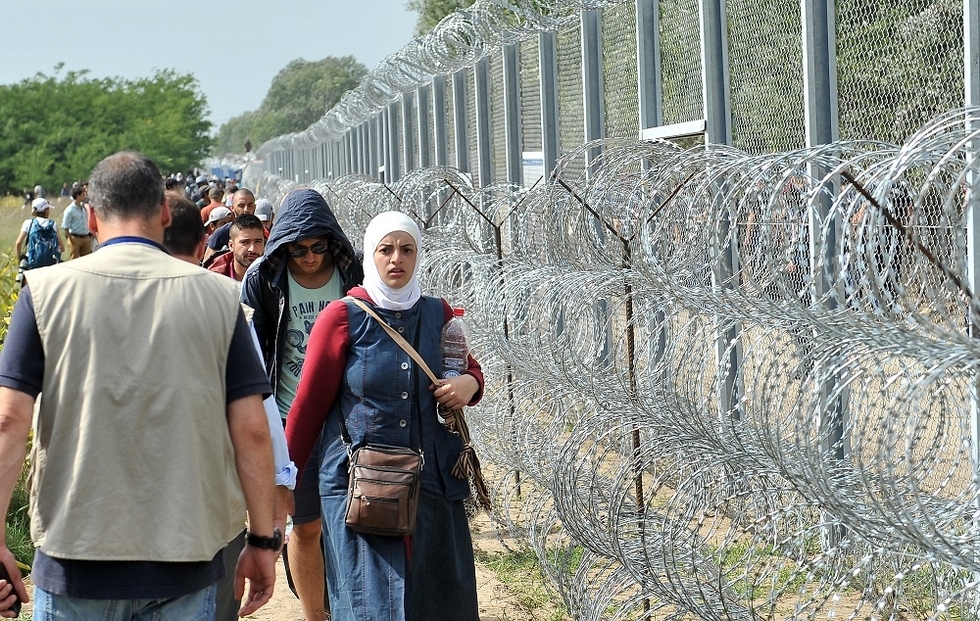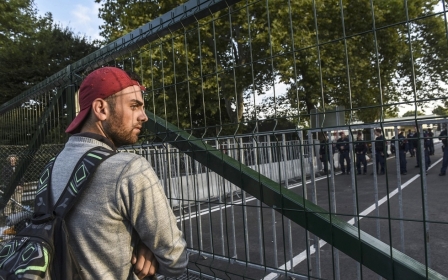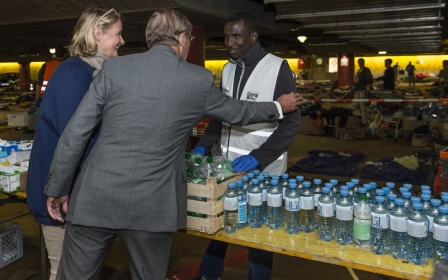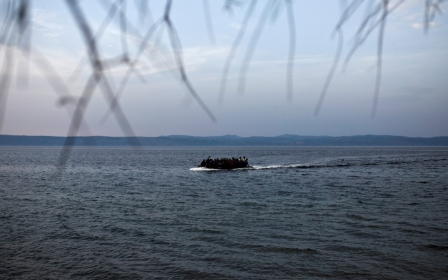Tensions at boiling point on Hungary-Serbia border

ROSZKE, Hungary - The mood on the Hungary – Serbia border has grown increasingly tense in the last 24 hours after new entry rules came into force.
Thousands of refugees and migrants are now trapped on the border, with Serbian authorities saying that thousands more could arrive in the coming hours and days. Hungarian riot police secured the main checkpoints throughout the day, with this morning seeing dozens of arrests for illegal entry.
This is the first time this has happened in Hungary since the crisis began and those arrested face up to three years in jail or deportation for attempting to cross.
Gyorgy Bakondi, an aide to Prime Minister Viktor Orban told media that Hunagry now hoped that "the messages we have been sending migrants for a long time have reached them".
“Don’t come. Because this route doesn’t lead where you want to go," he told the New York Times.
The legality of the move has been called into question, with the Hungarian head of the International Organisation for Migration (IOM), saying that the move “looks like” a contravention of EU asylum laws. Hungary has yet to respond to the criticism but there have been no indications so far that the restrictions will be eased.
Said, a Syrian refugee in his early 40 years, was one of the last to have crossed before Hungarian authorities close the border and declared a state of emergency.
“I walked for weeks [to get to Hungary],” he told Middle East Eye. “I was beaten to the Macedonian border with batons. I was thrown in the mud when I tried to protect my daughters from the blows of the soldiers.
“After I thought everything would be easier. Instead every border seems more difficult than the last.”
He told MEE that he came from Turkey where he was treated well but could not find work, and decided at that point to come to Europe.
“We have a right to a better future and for this reason we want to go to Germany,” he added.
Sharif Hamdoun, another Syrian, also said he had been travelling for more than three months to reach the EU. He too managed to pass shortly before the clampdown on the border.
“I am Syrian, from Hama, which is a very important city for our revolution,” he said, as he desperately searched for information about where to seek assistance in Hungary. “I was a doctor, I worked in the emergency room but then the soldiers of [Syrian President Bashar al-Assad] imprisoned me. And I still carry the marks of torture to which I have put in my days in prison.”
“We've seen the despair, pregnant women killed by bombs. If I could stay safely in my land – believe me I would have remained there.”
Deteriorating border conditions
The UN refugee agency, UNHCR, has expressed concern about the management of the refugees and the situation on the border. Monserrat Feixas Vihe, a regional representative for UNHCR in Central Europe, said that the system was at breaking point.
"There are two pre-registration centres, full of people and the conditions in which people live are not decent at all,” he said.
Last week, disturbing images emerged of Hungarian security officials throwing bags of food to cooped up refugees and migrants. The Austrian volunteer who filmed the scenes said that the refugees and migrants were being treated “like animals”.
Most of those who enter Hungary try to avoid registration in the camps and prefer to pass through to neighbouring Austria – from where they often make their way further north - undetected.
“They [the refugees and migrants] should be in the country from 36 to 48 hours, but since the numbers are too large to be managed with dignity, they stay longer,” said Vihe.
“There are no enough interpreters and we have serious language and communicative problems.
“We are also very concerned for the management of the medical emergency. Currently, there is still not a hygiene emergency, but our fear is that there may soon be one. It would be a disaster. Europe's actions are proving inadequate and deficient.”
Overwhelming influx
The EU's border agency Frontex said that a "large number of the migrants arriving in Greece make their way towards Hungary, where the number of detections at its border with Serbia increased 20-fold to more than 52,000 in August, bringing the number so far this year to more than 155,000."
Hungary, however, has disputed these figures. Gyorgy Bakondi, homeland security adviser to the Hungarian prime minister, said on Tuesday that 171,000 people have claimed asylum in Hungary in the last three months alone, the Guardian reported.
Of this, 300 asylum claims have been granted and 4,000 people have been deported. A further 65,000 claims ended when the applicants “disappeared” and another 95,000 claims are still being processed, he said.
Budapest says it simply cannot handle the influx any longer.
It has now announced plans to build a fence to keep migrants out along part of its border with Romania, in addition to the barrier being erected along the frontier with Serbia, Foreign Minister Peter Szijjarto said.
"The measure is necessary as people-smugglers may change their routes because of the existing fence on the Hungary-Serbia border, hence a part of the immigration pressure may get directed towards Romania," Szijjarto told a press conference in Budapest.
The announcement has sparked concern in neighbouring Croatia which now fears it will become the next hot destination for migrants as refugees as other better-established routes become blocked off.
"It is a system of spilling over ... if they [migrants] cannot go somewhere, there is a realistic possibility that they will head in our direction," Zlatko Sokolar, head of the interior ministry's border administration, told state-run HRT radio.
'Safe third country'?
For now the situation on the Serbia-Croatia border has remained calm, but the Serbian government has lashed out at Hungary, calling on them to immediately open the border and not forcibly return refugees and migrants who are found to have visited Serbia.
Hungary has said that Serbia is a “safe third country” for refugees, although UNHCR has said it has serious doubts about the country’s suitability. Non-EU member Serbia is still struggling to rehome and integrate internal refugees, caused by the Yugoslav Wars in the 1990s, and also has a mixed human rights record when it comes to migrants and refugees.
Mustafa, a journalist from Iraq who said he escaped due to the worsening security situation, has been travelling with a group of young men and crossed into Hungary in recent days.
“Many good people have helped us by giving us what we needed, but every day we met with too many injustices,” he told Middle East Eye.
"I could not tell you how we got here. Sometimes it looked like a nightmare, then it seemed that we could do it in a hurry and reach freedom, but then [when we got] here to Hungary it seem a nightmare again.
“A 15-year-old guy, who was with us, was taken by the police in Serbia and we do not know anything about him. We were able to escape. Not him.”
“Now we just want to go to Mom Merkel,” he added in reference to German Chancellor Angela Merkel, who has enacted one of the EU’s most liberal policies toward refugees.
However, an apparent U-turn by Germany over the weekend saw Berlin reinstate controls on its border with Austria and temporarily suspended the free-border Schengen agreement.
The move has sparked concern that German generosity could have reached its limits and that border states like Greece, Italy and Hungary will be forces to fend for themselves.
On Monday, the EU failed to reach a deal on mandatory quotas for refugees. Germany, Austria and Slovakia have since called for a special European summit next week. Merkel has warned that "time is running out" to find a solution to the crisis, but it is unclear if Eastern European states – that were instrumental in sinking Monday’s proposals – will heed her calls to do more.
Additional reporting by Simona Sikimic in London
New MEE newsletter: Jerusalem Dispatch
Sign up to get the latest insights and analysis on Israel-Palestine, alongside Turkey Unpacked and other MEE newsletters
Middle East Eye delivers independent and unrivalled coverage and analysis of the Middle East, North Africa and beyond. To learn more about republishing this content and the associated fees, please fill out this form. More about MEE can be found here.




